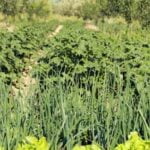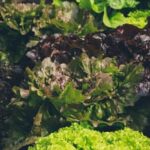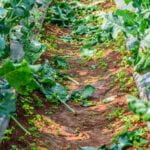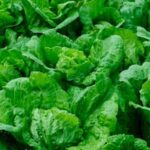As a gardener, one of the key decisions you’ll need to make is whether or not to use mulch in your vegetable garden. Do you put mulch in vegetable gardens? The answer is a resounding yes. Mulch plays a crucial role in the health and productivity of vegetable plants, and understanding its importance can greatly benefit your gardening endeavors.
Mulch serves as a protective covering for the soil, helping to retain moisture, suppress weeds, and regulate temperature. In addition to these practical benefits, mulch also contributes to the overall aesthetic appeal of your garden. In this article, we will explore the various types of mulch suitable for vegetable gardens, the advantages of using mulch, proper application techniques, common mistakes to avoid, specific mulching tips for different vegetables, and how to maintain mulch throughout the growing season.
Whether you’re a beginner or seasoned gardener, understanding the role and impact of mulch on your vegetable garden is essential for achieving a successful harvest. By incorporating mulch into your gardening routine, you can create an optimal environment that promotes healthy plant growth and maximizes your yield. In the following sections, we will delve deeper into the specifics of using mulch in vegetable gardens and provide valuable insights to help you make informed decisions for your own garden.
Different Types of Mulch for Vegetable Gardens
When it comes to choosing the right type of mulch for your vegetable garden, there are several options to consider. Each type of mulch has its own set of benefits and considerations, so it’s important to understand the differences before making a decision. Here are some common types of mulch that you can use in your vegetable garden:
- Straw: Straw mulch is a popular choice for vegetable gardens because it is lightweight, easy to apply, and breaks down relatively slowly. It helps retain moisture and suppresses weeds effectively, making it an excellent option for many different types of vegetables.
- Leaves: Fallen leaves can be collected and used as mulch in vegetable gardens. Shredded leaves create a dense layer that helps with moisture retention and weed suppression. Additionally, as they break down, they add valuable organic matter to the soil.
- Grass Clippings: If you have access to grass clippings from your lawn, they can be used as mulch in your vegetable garden. However, it’s important to use them sparingly and ensure that they are not treated with herbicides or pesticides. Grass clippings break down quickly and can provide an excellent source of nitrogen for your plants.
- Wood Chips: Wood chips are another popular choice for mulching vegetable gardens. They break down slowly and help improve soil structure over time. Keep in mind that fresh wood chips should be aged before using them as mulch to prevent nitrogen depletion.
Before selecting a specific type of mulch for your vegetable garden, consider the unique needs of your plants and the local climate conditions. Experimenting with different types of mulch may help you determine which one works best for your particular garden setup.
Benefits of Using Mulch in Vegetable Gardens
Moisture Retention
Mulch plays a crucial role in retaining moisture for vegetable gardens. By covering the soil with a layer of mulch, evaporation is minimized, allowing the soil to retain more water. This is especially important during hot and dry periods when plants are at risk of drying out. Mulch helps create a more stable environment for plant roots, ensuring that they have consistent access to the moisture they need for healthy growth.
Weed Suppression
One of the biggest benefits of using mulch in vegetable gardens is its ability to suppress weed growth. Mulch creates a barrier over the soil, preventing weed seeds from receiving the light and space they need to germinate and thrive. By minimizing weed competition, vegetable plants can flourish without having to compete for nutrients, water, and sunlight. This not only reduces the amount of manual weeding required but also promotes healthier and more productive vegetables.
Temperature Regulation
Mulch serves as a natural insulator for the soil in vegetable gardens, helping to regulate temperature fluctuations. In hot weather, mulch provides shade and keeps the soil cool, which is beneficial for heat-sensitive plants. Conversely, in cooler temperatures, mulch acts as an extra layer of insulation, protecting plant roots from cold snaps. This temperature regulation provided by mulch creates a more hospitable environment for vegetable plants throughout their growing season.
How to Properly Apply Mulch in Vegetable Gardens
When it comes to applying mulch in vegetable gardens, knowing the proper techniques can make a significant difference in the health and productivity of your crops. Here’s a step-by-step guide on how to apply mulch around different types of vegetables:
Step 1: Prepare the Soil
Before applying mulch, it’s essential to prepare the soil by removing any existing weeds and loosening the top layer. This will create a clean and receptive surface for the mulch to be applied.
Step 2: Choose the Right Mulch
Select a suitable type of mulch for your vegetable garden. Straw, leaves, grass clippings, and wood chips are all popular options. Consider the specific needs of your vegetables when choosing the right type of mulch.
Step 3: Apply Mulch Carefully
Once you’ve chosen your mulch, apply it carefully around each vegetable plant. Make sure to leave some space around the base of each plant to prevent moisture-related issues like rotting. The recommended depth for most vegetable gardens is around 2-4 inches.
Step 4: Maintain Mulch Throughout the Season
As your vegetables grow, you may need to add more mulch or adjust its placement to ensure optimal coverage and benefits. Regularly check for any signs of compaction or depletion and refresh as needed.
By following these simple steps, you can effectively apply mulch in your vegetable garden and enjoy the benefits it brings throughout the growing season.
Common Mistakes to Avoid When Mulching Vegetable Gardens
It is important to avoid common mistakes when mulching vegetable gardens in order to ensure a healthy and productive growing environment. One of the most common errors is over-mulching, which can lead to excessive moisture retention, root rot, and oxygen deprivation for plant roots.
Using the wrong type of mulch is another mistake that gardeners should steer clear of. Different types of mulch have varying levels of acidity, nutrients, and textures, so it’s crucial to select the right one for specific vegetables.
Properly preparing the soil before applying mulch is also essential for successful gardening. Soil should be well-aerated and free from weeds before adding any type of mulch. Failing to prepare the soil adequately can lead to weed growth beneath the mulch, competing with vegetable plants for nutrients and water. Lastly, not replenishing or maintaining the mulch throughout the growing season can cause it to break down quickly and lose its effectiveness in providing moisture retention and weed suppression.
Avoiding these common mistakes when mulching vegetable gardens will help ensure a thriving and abundant harvest for gardeners. By being mindful of how much mulch is applied, using the appropriate type for specific vegetables, properly preparing the soil beforehand, and maintaining the mulch throughout the growing season, gardeners can create an optimal environment for their vegetable plants.
| Common Mulching Mistakes | Impact |
|---|---|
| Over-Mulching | Excessive moisture retention, root rot, oxygen deprivation |
| Using Wrong Type of Mulch | Acidity levels may not be suitable for specific vegetables; texture may hinder growth |
| Not Preparing Soil Adequately | Weed growth beneath mulch can compete with vegetables for nutrients and water. |
Mulching Tips for Specific Vegetable Plants
Mulching Tips for Tomatoes
When it comes to growing tomatoes, mulching is an essential practice that can help ensure a successful harvest. One of the best options for mulching tomatoes is using black plastic mulch. This type of mulch helps regulate soil temperature, retain moisture, and suppress weeds.
To apply black plastic mulch around tomato plants, lay the plastic over the soil and secure it with stakes or heavy objects. Cut holes in the plastic to plant your tomato seedlings, making sure to keep the plastic in place to provide ongoing benefits throughout the growing season.
Mulching Tips for Peppers
Pepper plants also benefit from mulching, and one of the most effective options is using straw mulch. Straw helps conserve moisture in the soil, prevent weed growth, and keep peppers clean by preventing soil splashing onto the leaves and fruits.
To apply straw mulch around pepper plants, simply spread a 2-3 inch layer around the base of each plant. Be sure not to pile the straw directly against the stems of pepper plants as this can cause them to rot.
Mulching Tips for Cucumbers
Cucumbers thrive when mulched with organic materials such as grass clippings or shredded leaves. These types of mulches help retain moisture in the soil and provide nutrients as they break down over time. When applying grass clippings or shredded leaves around cucumber plants, be mindful not to pack them too densely around the base of each plant to avoid trapping excessive moisture against their stems.
These specific recommendations for mulching tomatoes, peppers, cucumbers and other popular vegetables will help gardeners maximize their crops while keeping maintenance requirements low. By choosing appropriate types of mulch and correctly applying them, vegetable plants can flourish while reducing water consumption and minimizing weed growth in your garden.
Maintaining Mulch in Vegetable Gardens
Maintaining mulch in vegetable gardens is an essential part of garden care that requires regular attention throughout the growing season. As time passes, mulch can break down, become compacted, or be affected by weather conditions, so it’s important to know how to refresh and maintain it properly. By taking the time to properly care for your mulch, you can maximize its benefits and help your vegetable garden thrive.
One way to maintain mulch in vegetable gardens is by regularly checking its depth and condition. Over time, organic mulches such as straw, leaves, and grass clippings can decompose and become thinner. It’s important to replenish the mulch layer to maintain adequate coverage. Additionally, you should fluff up any compacted areas of mulch to ensure that water can penetrate through it effectively.
In addition to checking the condition of your mulch, it’s also important to keep an eye out for weeds growing through the mulch layer. While one of the benefits of using mulch is weed suppression, weeds can still find their way through over time. Regularly inspect your mulched areas and pull out any weeds that have managed to grow through. This will help prevent them from competing with your vegetable plants for nutrients and moisture.
| Mulching Tips | Recommendation |
|---|---|
| Check Mulch Depth | Regularly check the depth of the mulch layer and replenish as needed. |
| Weed Inspection | Regularly inspect for weeds growing through the mulch and remove them promptly. |
Conclusion
In conclusion, it is clear that mulch plays a vital role in the success of vegetable gardens. Whether it’s straw, leaves, grass clippings, or wood chips, the use of mulch offers numerous benefits such as moisture retention, weed suppression, and temperature regulation. By following proper application techniques and avoiding common mistakes like over-mulching or using the wrong type of mulch, gardeners can ensure that their vegetable plants thrive.
Furthermore, specific recommendations for mulching tomatoes, peppers, cucumbers, and other popular vegetables can help maximize the benefits of mulch and promote healthy growth. Additionally, maintaining mulch throughout the growing season is essential for continued success. Regularly refreshing and maintaining mulch will ensure that vegetable gardens remain productive and yield a bountiful harvest.
In light of these considerations, it is highly recommended that all vegetable gardeners consider incorporating mulch into their gardening practices. By doing so, they can create an environment that supports the optimal growth of their vegetable plants while minimizing the challenges associated with weed control and moisture management. Ultimately, through the implementation of proper mulching techniques and maintenance practices, gardeners can look forward to a flourishing garden and a plentiful supply of fresh produce at harvest time.
Frequently Asked Questions
Should I Add Mulch to My Vegetable Garden?
Adding mulch to your vegetable garden can be beneficial in several ways. Mulch helps retain moisture in the soil, which is important for the health and growth of vegetable plants. It also helps to suppress weeds, regulate soil temperature, and prevent erosion. Organic mulches, such as straw or compost, can also add nutrients to the soil as they break down.
Should I Put Mulch Around My Tomato Plants?
Mulching around tomato plants can be a good idea for several reasons. Mulch helps maintain soil moisture levels, which is important for healthy tomato plants.
It also reduces weed growth, prevents soil compaction, and can help regulate soil temperature. However, it’s important not to pile mulch directly against the stems of the tomato plants to avoid potential issues such as rot or disease.
Is It Safe to Use Black Mulch in a Vegetable Garden?
Using black mulch in a vegetable garden is generally safe as long as it is made from non-toxic materials and does not contain any harmful chemicals that could leach into the soil. Black mulch is effective at retaining heat, promoting better root development in vegetables like tomatoes, peppers, and eggplants.
However, it’s essential to ensure that the black mulch used is made from safe materials and doesn’t pose any risks to the health of your vegetable plants or the edibility of their produce.

If you’re looking to get into vegetable gardening, or are just looking for some tips on how to make your current garden better, then you’ve come to the right place! My name is Ethel and I have been gardening for years. In this blog, I’m going to share with you some of my best tips on how to create a successful vegetable garden.





